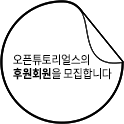(1) By “readers” we mean people who are still accustomed, as almost every literate and intelligent person used to be, to gain a large share of their information about and their understanding of the world from the written word.
By "readers"
we mean people
who are still accustomed
, as almost every literate and intelligent person used to be (accustomed to gain...),
to gain
a large share of
their information about (the world)
and
their understanding of the world
from the written word.
어휘
By (A) we mean (B) : (A)라는 말로 우리가 의미하는 것은 (B)다.
+++ A의 의미를 B로 한정 +++ A에는 이러이러한 뜻이 있는데 그중에서 우리가 의미하는건 B다.
literate : able to read and wirte
intelligent : able to think, understand, learn
accustom to : ~에 익숙해지다.
문법
* 주격관계대명사 who
we mean people who are still accustomed
→ We mean people + They are still accustomed
해석
압축해석
By "readers" we mean people who are still accustomed to gain a large share from the written word.
"readers"라는 것을 통해서 우리가 의미하려고 하는 것은 사람들이 기록된 것으로부터 많은 부분을 얻는 것에 여전히 익숙하다는 것이다.
(필자가 readers가 가리키는 대상을 "한정"하고 있음)
→
"readers"란 말로 우리가 의미하려고하는 것은 사람들이, 거의 매일 읽고 쓰고 사고하는것에 익숙한 것처럼, 기록된 것으로부터 세상에 대한 이해와 정보에 대한 많은 부분을 얻는 것에 여전히 익숙하다는 것이다.
(2) Not all of it, of course; even in the days before radio and television, a certain amount of information and understanding was acquired through spoken words and through observation.
Not all of it(= information and understanding), of course;
even
in the days
before radio and television,
a certain amount of information and understanding
was acquired through spoken words
and
through obserbvation.
해석
물론 그것이 전부는 아니죠;
라디오와 텔레비전이 있기 이전 시대에 조차도 정보와 이해는 어느정도는 뱉어진 말과 관찰을 통해 얻어졌습니다.
(3) But for intelligent and curious people that was never enough.
But
for intelligent and curious people
that (= spoken words, observation) was never enough.
해석
하지만 지적이고 호기심이 많은 사람들에게 그것은 충분히지 않았습니다
(4) They knew that they had to read too, and they did read.
They(=intellignet and curious people) knew
that
they had to read too,
and
they did read.
문법
* 강조용법의 do
read라는 것을 강조하기 위해 they read(과거)가 아니라 they did read라고 표현
해석
그들은 읽기도 해야 한다는 것을 알았습니다. 그리고 그들은 읽었습니다.



